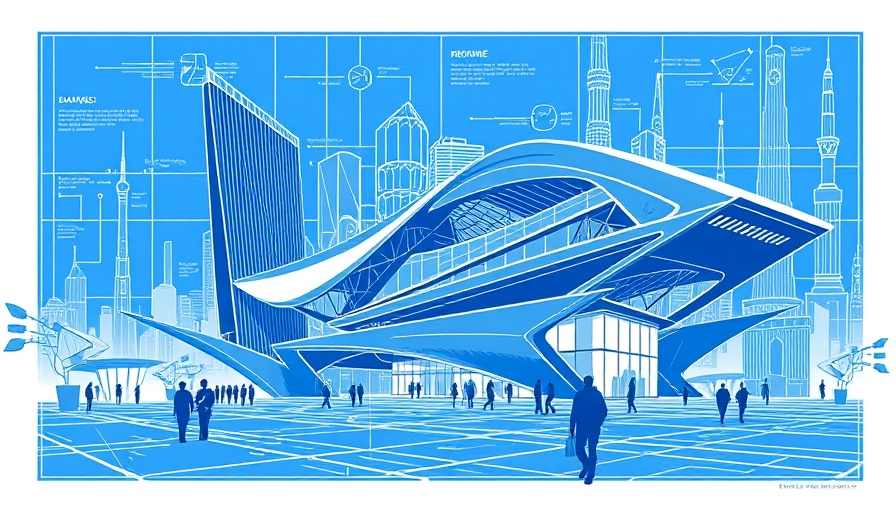
AI Revolution: The New Era of Work
As we approach 2025, a seismic shift in the workplace is already underway—one defined by the fusion of human intelligence and artificial intelligence. According to a new report from Microsoft, titled Work Trend Index Annual Report, we are moving towards a paradigm where work is not merely transformed; it is entirely redefined. This evolution is set against the backdrop of what Microsoft is calling "The Year the Frontier Firm Is Born," an assertion that signals a fundamental restructuring of labor influenced by advanced technology.
From Scarcity to Abundance: How Intelligence is Reshaping Work
The most striking revelation from the Microsoft report is the stark transition of intelligence from a scarce resource to one that is boundless and readily available. Historically, specialized expertise and knowledge have been valued as rare commodities in the workplace, often tethered to human limitations—both in capacity and costs. Yet now, we're witnessing a significant transformation where intelligence is deemed to be abundant, affordable, and accessible on demand. This shift could dramatically change how businesses operate, potentially spurring a supply shock across industries as they adapt to leverage this newfound resource.
The Promise and Challenge of AI Integration
Statistics from the report indicate a growing urgency among leaders, with 82% expressing the intent to integrate AI as digital team members within the next 12-18 months. This trend reflects a widening productivity gap; while 53% of leaders are calling for increased efficiency, an overwhelming 80% of global workers report feeling drained, overwhelmed by daily demands. Perhaps even more striking is the frequency of workplace interruptions—averaging 275 daily—illustrating the pressing need for assistance in maintaining productivity.
A New Model of Collaboration: Human-Agent Teams
The integration of AI transcends simple task automation. As noted in the report, we are transitioning through three vital phases: starting from humans working alongside AI to enhance productivity, progressing to human-agent teams collaborating on tasks, and culminating in a future where humans lead while AI carries out entire workflows. This maturation process is critical, as organizations must understand that merely adopting technology does not guarantee success; a cultural shift is equally essential.
Future Predictions: Organizational Structures in 2025
Microsoft's vision for 2025 isn't just about technological advancements; it's about a transformative reorganization of how businesses perceive work itself. Central pillars include enhanced collaboration, reimagined roles, and a robust strategy for integrating digital and human expertise. Companies that adapt successfully will be those that embrace this shift, ensuring their workforces are not merely equipped with technology but are rejuvenated via smarter workflows that prioritize human well-being.
Counterarguments and Diverse Perspectives
Despite the optimistic narrative presented by Microsoft, skepticism regarding AI's role in augmenting workplace productivity persists. Critics argue that widespread reliance on AI may lead to job displacements and contribute to workplace toxicity rather than alleviate stressors. Balancing the benefits of AI adoption with the potential for increased burnout and anxiety among the workforce will be crucial in steering organizations towards sustainable success.
The Emotional Toll of AI Integration
As we consider the human experience in this evolving landscape, it becomes imperative to address emotional responses to technological change. A shift towards AI and digital teams can evoke feelings of insecurity and fear among employees concerned about their roles. Building a culture of support and transparency will be paramount in alleviating these anxieties. Encouraging open dialogues about the value of human contributions in tandem with AI will be critical in forging path toward a balanced workplace.
Practical Insights for Embracing the Future of Work
Organizations must strategically prepare for the future: fostering an environment that embraces change while minimizing stress. Here are actionable strategies:
- Open Communication: Regularly engage employees in discussions about technology integration to ensure transparency.
- Training and Development: Invest in upskilling programs that prepare the workforce for new technologies and workflows.
- Flexible Work Arrangements: Adopt flexible policies that allow employees to manage their workloads and maintain work-life balance.
By employing these strategies, organizations can navigate this transition more smoothly, ensuring that employees remain resilient and focused in the face of rapid change.
Conclusion: Embracing the Intelligently Designed Workplace
Ultimately, the future of work is a synthesis of human ambition and technological progression. Organizations will thrive by rethinking traditional structures, integrating AI as a collaborative partner, and centering employee well-being in the transformation process. As we leap into this Era of Intelligence, embracing this unique intersection of human potential and artificial capabilities will reshape our experience of work as we know it.
 Add Row
Add Row  Add
Add 




Write A Comment